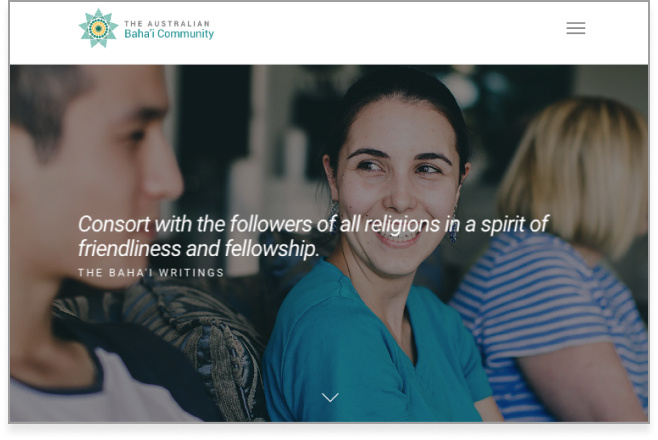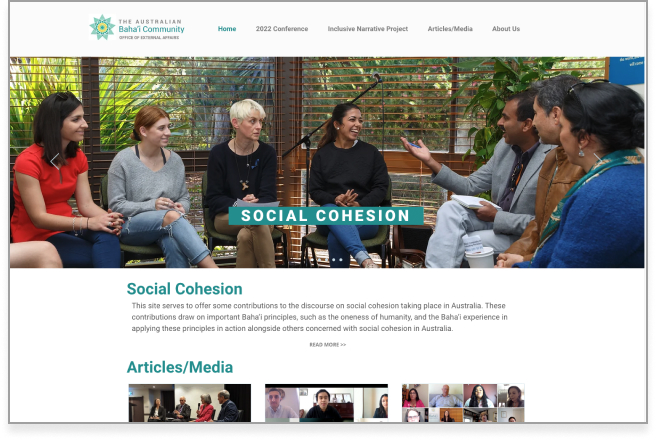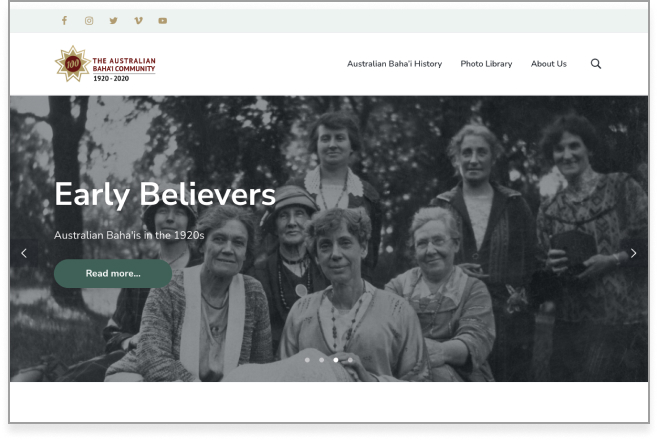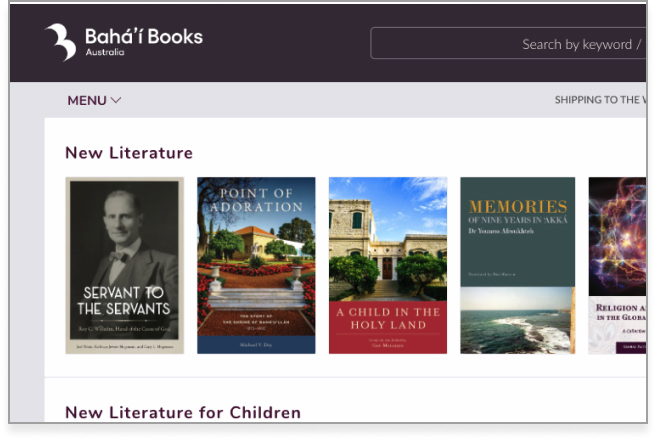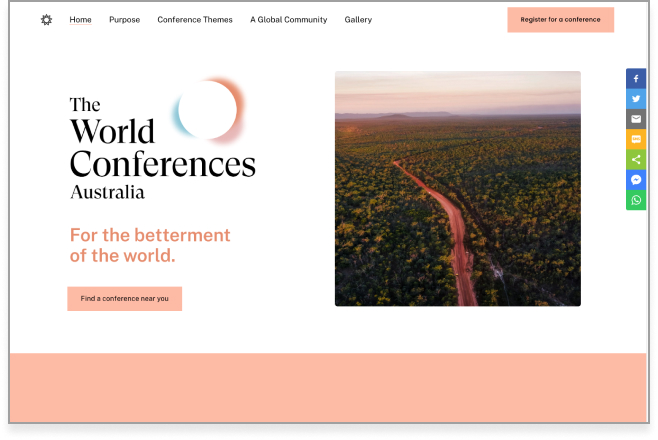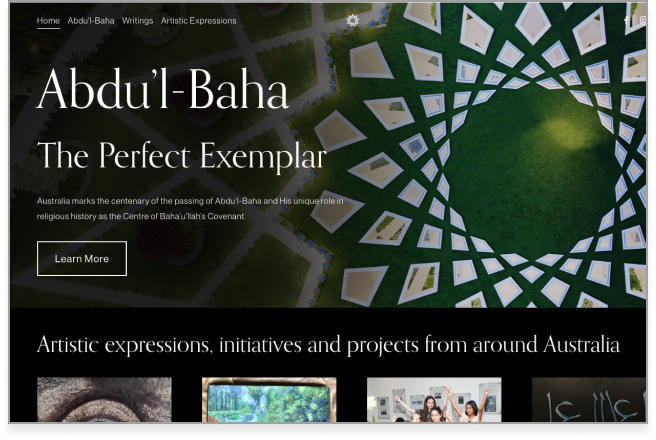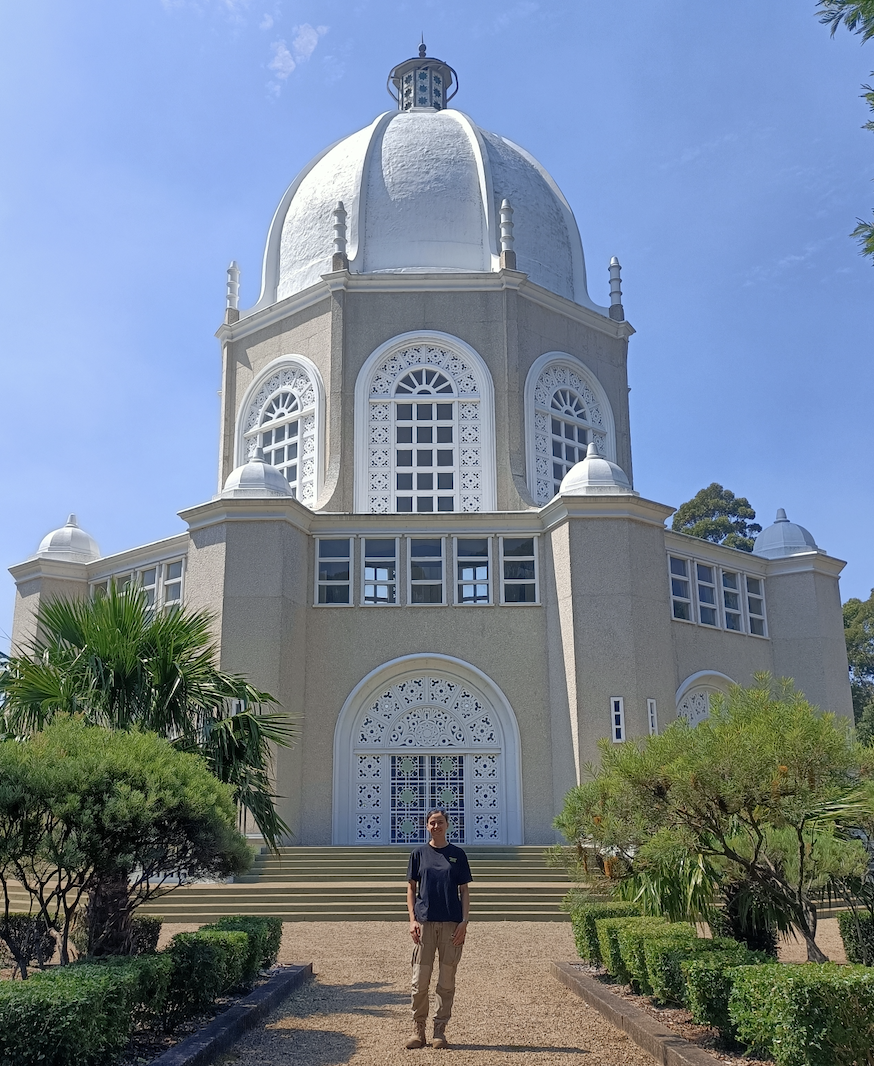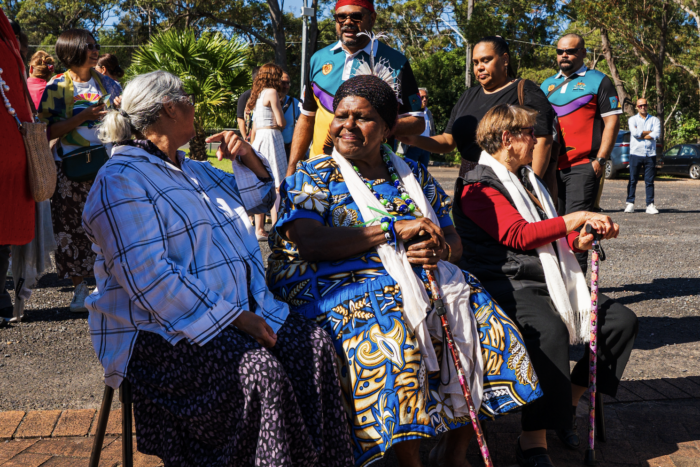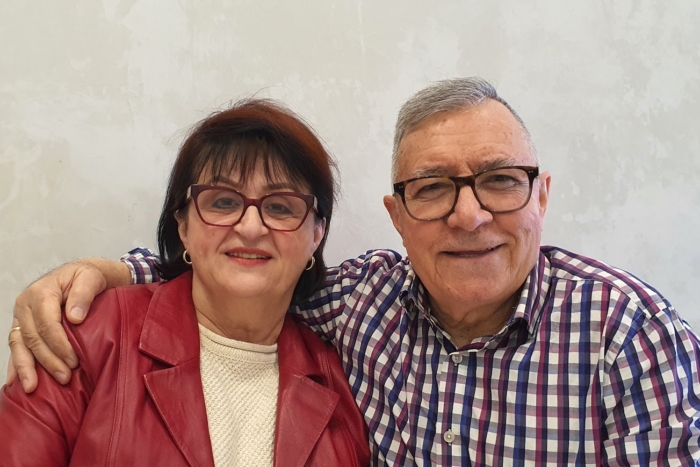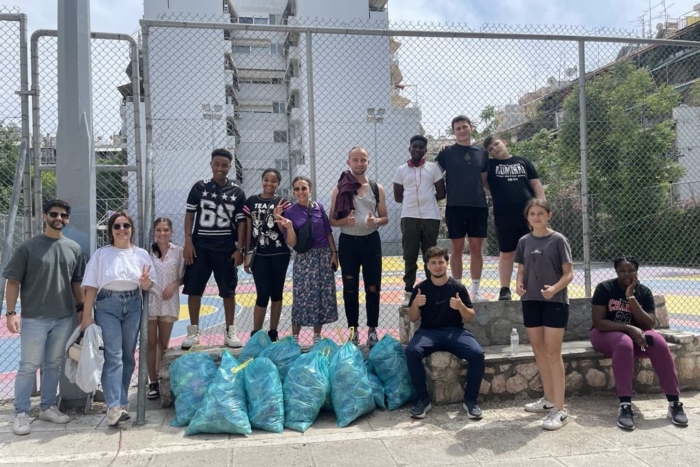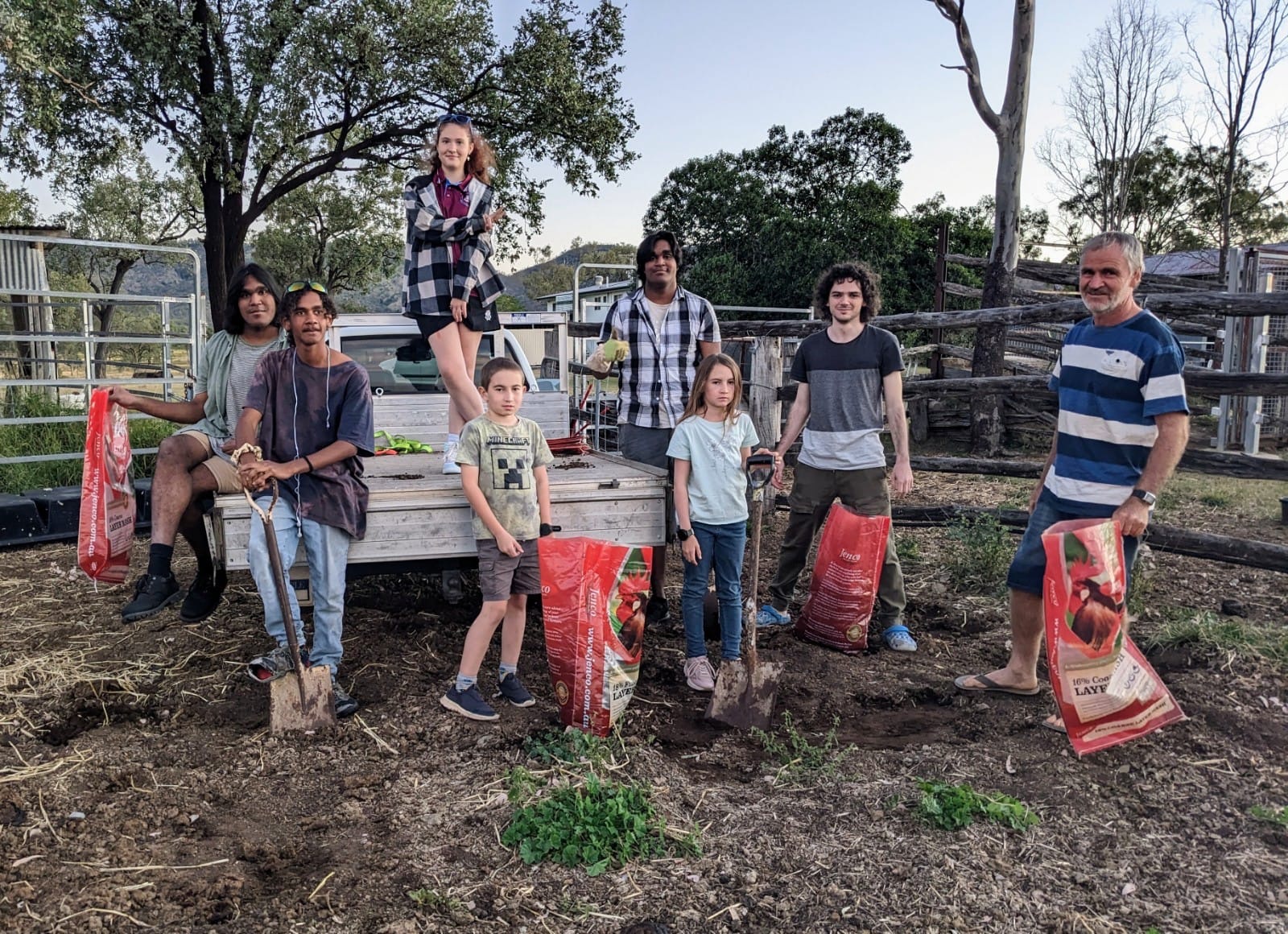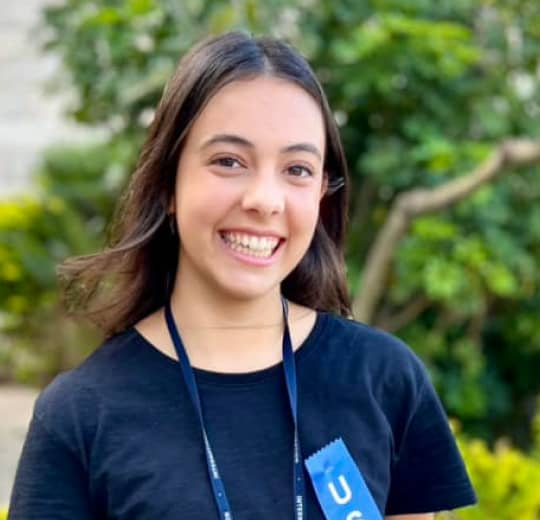The Baha’i House of Worship – a refuge for humanity and the natural world
In this interview with Australian Baha’i Horizons, Dallas Campbell speaks about the interplay between the Baha’i House of Worship and its surrounds, and how we each have a role to play in respecting and maintaining the balance of the temple’s natural surroundings.
Last year, Dallas Campbell offered to serve at the Sydney Baha’i House of Worship in a bid to share her professional skills with the team who care for the temple grounds.
“Recently I had taken one year away from my job in Perth to have a break from full-time work,” the 28-year-old says. “A ‘reset’ I suppose.
“It was also a chance to look for other ways to use my career in the path of service, and so when the opportunity came up to serve at the temple it seemed like such a confirmation.
“It makes me really happy that I can give back something of what I’ve learned over the years.”
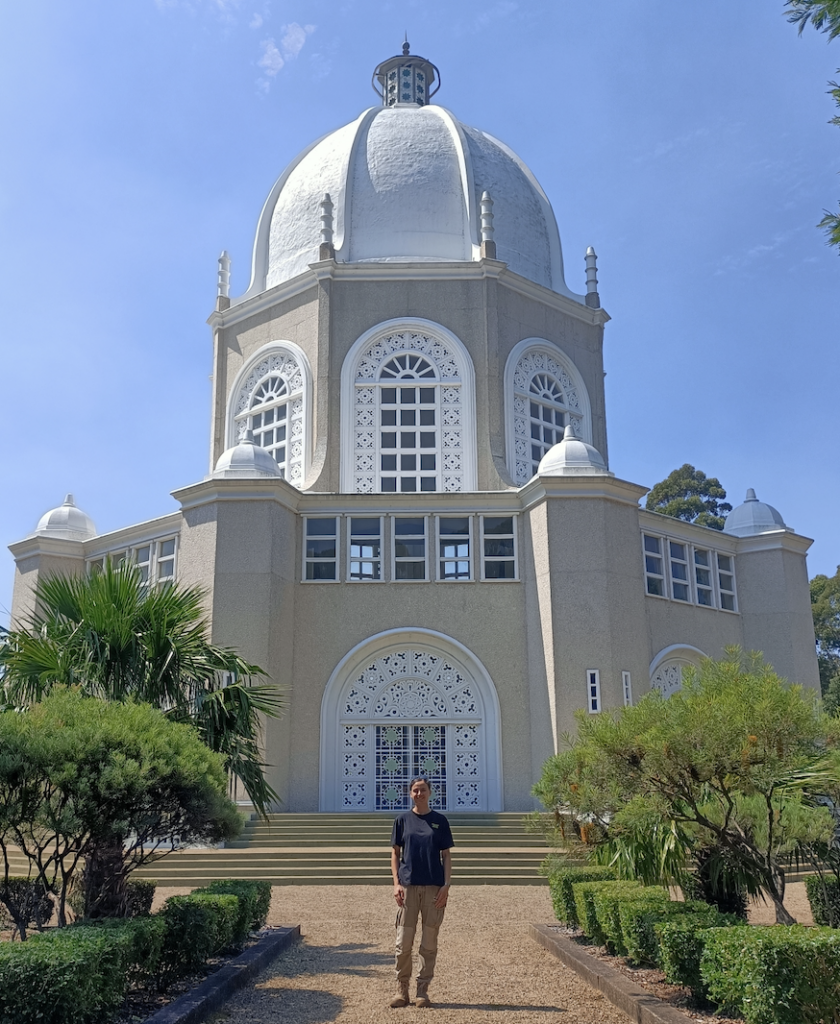
Having studied environmental science, Dallas has always had a love for the natural world and being outdoors. “Once you start learning about how interdependent a single ant species is with an entire ecosystem, it’s hard not to get sucked in,” she says. But what really drew her to this field was the yearning to make impactful change. “I think we all want to feel purposeful in our jobs. With climate change already here, it’s a job I hope will contribute to our future.”
Dallas says the temple grounds are a “big, beautiful, vibrant ecosystem” that are “a kind of heaven to me” but also for many endangered flora and fauna.
“Over the years, with updates to environmental law, we’ve come to understand that the property which the temple was built on back in the 60s is on a very rare soil-type, which leads to some very rare plants and animals living here – many of which are endangered,” she says.
“Some species here only occur in the surrounding 8km squared, and nowhere else in the world. In a simple view, while the temple is a refuge for all humanity, as a place to pray and meditate, the bushland around it is another kind of safe place for wildlife.
“There’s a very special feeling that comes while walking around the temple and seeing a flower which grows nowhere else, listening to birdcalls I’ve never heard before, and knowing it’s all under the sheltering shadow of the House of Worship. And that this shadow includes many Baha’i writings on how to be custodians of nature.”
Over the past month, Dallas has been working alongside temple volunteers to produce a series of educational videos focused on how to care for the temple site.
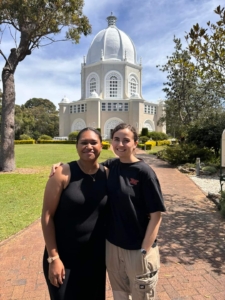
Combining her knowledge about environmental management and science communication with digital marketing and the Baha’i Writings, Dallas hopes the videos will provide visitors, staff and contractors with more insight into how to be respectful stewards of the earth.
“If we are talking about trying to contribute to spiritual enrichment, then I’d say it takes more than just one person,” she says. “I hope these videos can be a deepening opportunity for many people on how the environment is a part of Faith.”
Baha’u’llah’s Writings state that “Nature is God’s Will and is its expression in and through the contingent world.”1
“A lot of the time, being out in the field is a place to better understand what that means, really looking deeply into nature,” Dallas says. “My job can be a place to share the view of stewardship for the earth which the Faith calls us to.”
There’s a very special feeling that comes while walking around the temple and seeing a flower which grows nowhere else, listening to birdcalls I’ve never heard before, and knowing it’s all under the sheltering shadow of the House of Worship. And that this shadow includes many Baha’i writings on how to be custodians of nature.
Dallas Campbell
She speaks about how the evidence of endangered bandicoots, digging away by the temple tree-lines in search for food, is assisting in aerating the soil and eating insects that might otherwise be damaging plants.
“They are such a beautiful example of reciprocity, performing a service to the natural world (and our gardens) while taking food from it.”
Dallas says she hopes through careful study and management, the temple grounds can become a place where Baha’u’llah’s vision of harmony between humanity and nature can be fully realised. ‘Abdu’l-Baha expresses this balance when he states that:
Whoever discovers God in the universe discovers a perfect and marvellous order in sensible reality, a subtle, miraculous equilibrium whereby that apparently discordant world appears as an organic unit; thus he understands and feels the necessity both of creating such an ideal order in his own personal microcosm as well, and of attuning his own microcosm to all the microcosms which make up society. Willingly therefore will he shoulder the challenging responsibility of following the standards of inner personal and outer social order Revelation sets for him, showing to him as much of “the essential connection which proceeds from the realities of things”.2
“(The temple) is one of those places we are starting to see a constructed area and the natural world finding a balance. Though the Baha’i National Centre is still very much in a learning process of what this will look like, we are finding signs of a peaceful interface between the bushland ecosystem and the temple itself,” Dallas says.
Thanks for reading.
Subscribe
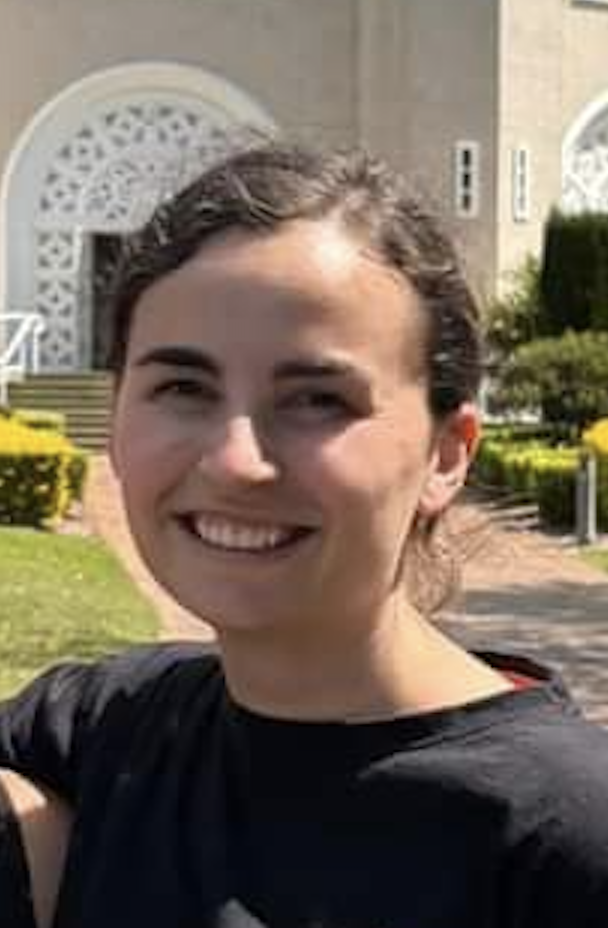
Dallas Campbell
With a deep interest in the natural world, Dallas Campbell studied environmental science and sees her work as a space to share the view of stewardship for the earth.
Published in March, 2024, in Individual Initiatives > Interviews
Available online at: horizons.bahai.org.au/individual-initiatives/the-bahai-house-of-worship-a-refuge-for-humanity-and-the-natural-world/
Related Stories
‘I saw this Faith’: The story of Margaret Gabey
In this interview for Australian Baha’i Horizons, Dellaram Vreeland speaks to one of the longest-standing Baha’is on Thursday Island, Margaret Gabey, who shares her journey of Faith, and her ...
Love the place you live: A pioneer’s story
Nasser and Farzaneh Sedghi arrived in Sydney from India in 1984. Arriving as refugees, and with little financial support, they spent three years living in the city before deciding to move ...
‘Feeling of hope and faith’: New book injects light into the darkness
Nobel Prize for Literature winner Gao Xingjian says that “It’s in literature that true life can be found. It’s under the mask of fiction that you can tell the truth.” It’s a sentiment that ...
‘We are there to serve’: Two Australian youth share their overseas pioneering story
In this interview with Australian Baha’i Horizons, Jacob Baron and Sami Milani speak about their work assisting with the community-building process unfolding in eastern Europe and explore what it ...
‘Bounties far outweigh the difficulties’: From Perthie to pioneer
In this interview with Australian Baha’i Horizons, Renee Campbell speaks about her decision to pioneer abroad, and the community-building work currently underway in her newfound neighbourhood in ...
New podcast connects hearts to ‘Abdu’l-Baha and the Bab
In this interview with Australian Baha’i Horizons, Sana Vasli speaks about the inspiration behind his individual initiative Stories of The Master – a podcast series that shares inspiring and ...


